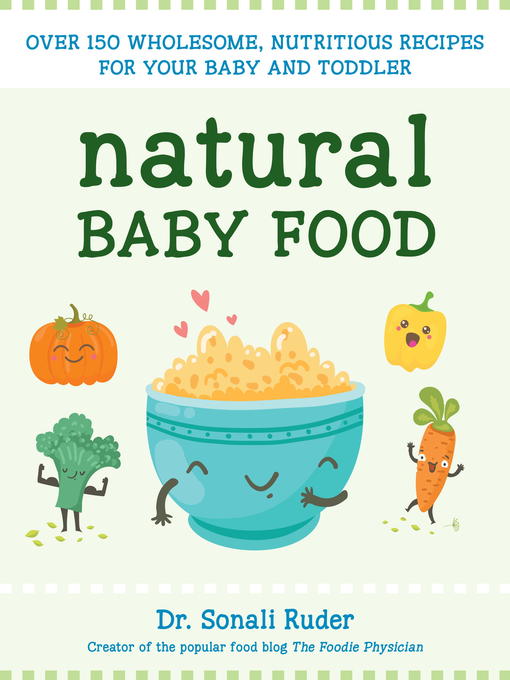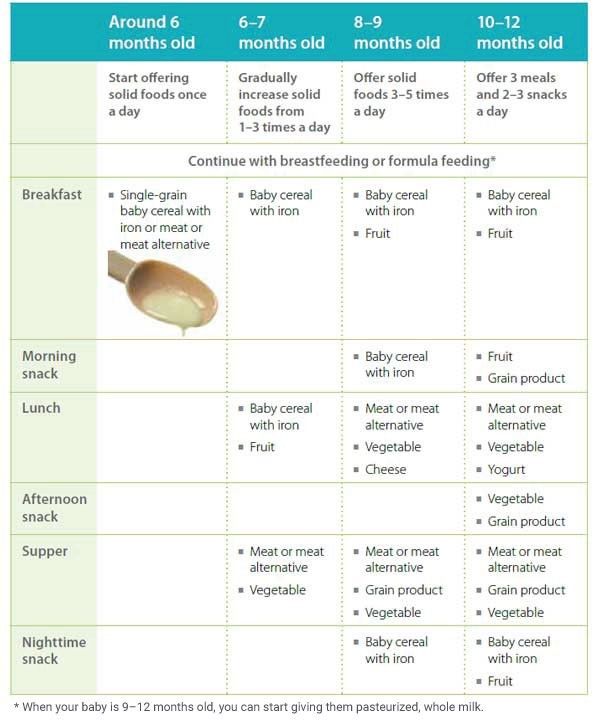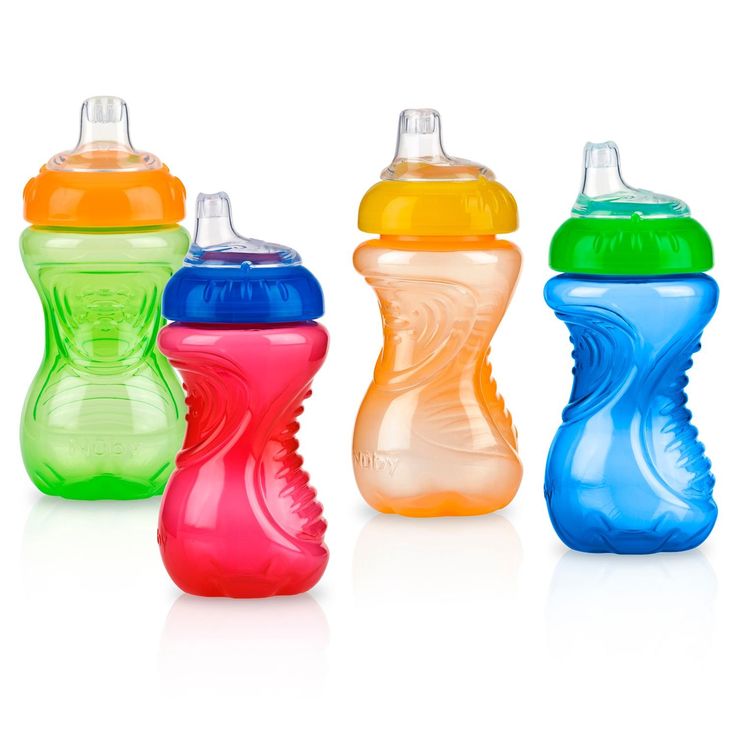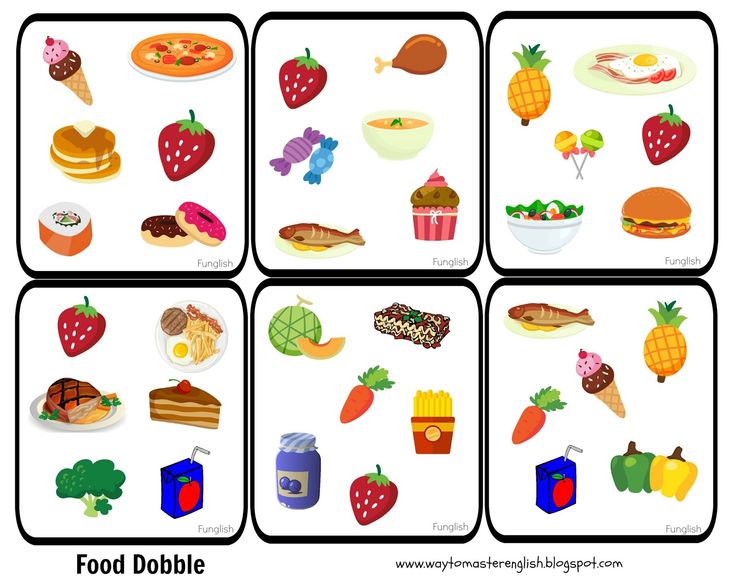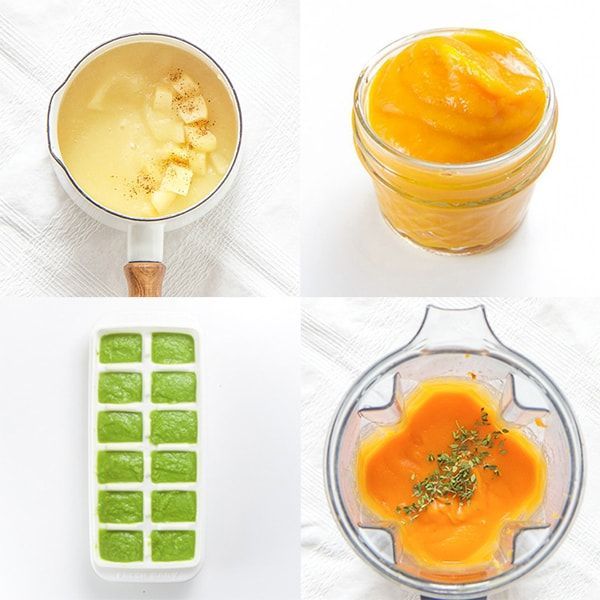Baby throwing up water after feeding
Baby Spitting Up Clear Liquid? Causes and When to Call the Doctor
So clear liquid is part of the package deal. But what is it and why does it happen? Several things could be at play here: saliva, spit-up from breast milk or formula, mucus, or even a combination of these. Let’s take a closer look.
Spit-up
Babies under a year old spit up — for some it’s often and a lot. Usually, spit-up is simply part and parcel of their maturing digestive system.
Your baby may do you the kindness of burping before they spit up. So listen up and stay prepared with burp cloth in hand.
After a burp, you may see a lot of spit up or simply a white, milky drool. Sometimes the spit up or drool could be clear. Sometimes this is just partially digested formula or breast milk combined with saliva.
Whether it is white or clear, a little spit-up or drool after a feed is normal.
Vomiting
Your baby has a ton of learning to do. Including learning not to gulp down milk too quickly, not to eat more than their tummy can hold in one sitting, and how to digest food.
During the first months, while they’re still learning, your baby may vomit. Here’s how you spot the difference between vomit and spit-up:
- Vomit shoots out when the muscles around the stomach contract forcefully to push out the contents.
- Vomit will probably have some clear stomach juices mixed into it. It may also look like curdled milk or miniature lumps of cottage cheese.
Unless the vomiting is happening frequently or accompanied by other symptoms, like a fever, it may just be part of the learning process. Yes, you’ll get used to this part of parenting too.
Teething
Your baby will probably cut their first teeth between 4 and 7 months old. While this milestone is a cause to celebrate, it may not be painless. Teething can sometimes cause discomfort and even pain.
Drooling plenty of clear saliva is your baby’s way of coping. Sometimes they may even spit up some excess drool.
You can help ease your baby’s discomfort by rubbing the sore gums with your finger or giving them a cool teething ring to bite on.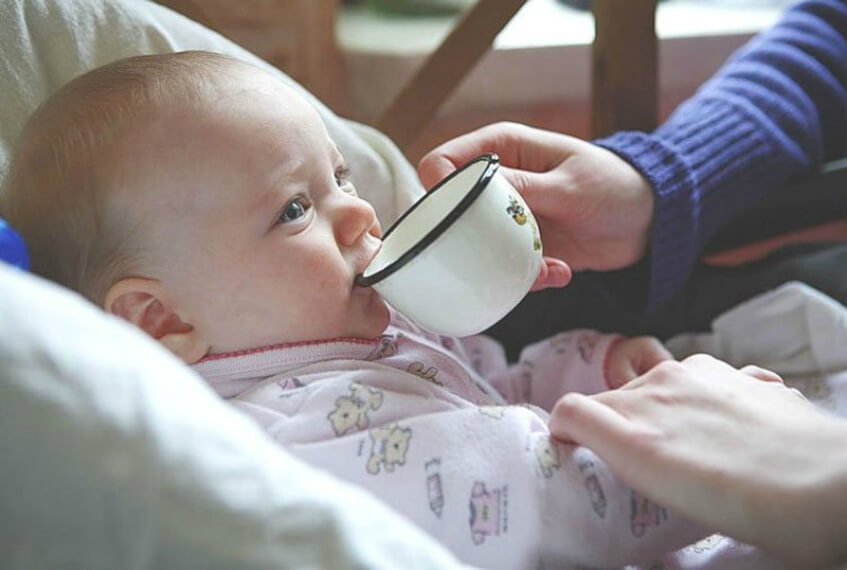 You can also use bibs to help catch some excess saliva as it drips off their chin.
You can also use bibs to help catch some excess saliva as it drips off their chin.
But there’s not much you can do to stop the excess drool, even if it makes them spit up — just know that it’s a temporary phase.
On the other hand, if the spit-up turns to vomit, it’s not just teething. You should consider whether your little one has other symptoms and consult with your doctor.
Illness
Babies and children get sick more often than adults because their immune system is developing. From about 6 months old, when the immunity you gave to your baby starts to fade, your little one will have to start building up their own immune system.
Heads up: This developing immune system means your baby may start to get colds. Since your baby hasn’t yet learned to blow their nose or cough up mucus, they’ll be swallowing a lot of the mucus, which might cause vomiting. This mucus can come up as a clear or cloudy liquid when they vomit.
If your baby is vomiting and has fever and diarrhea, you may notice that the vomit is clear.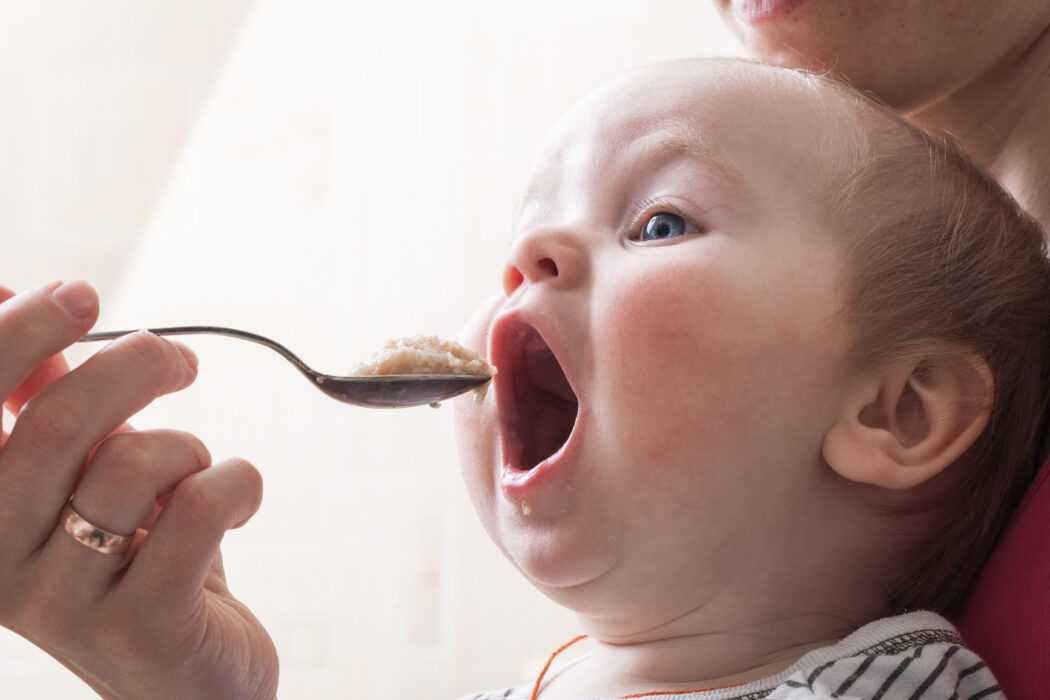 This happens when nothing is left in the stomach to throw up except for clear stomach secretions.
This happens when nothing is left in the stomach to throw up except for clear stomach secretions.
Speak with your pediatrician if your baby exhibits these symptoms to be sure that your little one gets the appropriate care.
A fever of 100.4°F (38°C) or higher in a baby who’s under 2 or 3 months old also warrants a call to the doctor. You should also call your doctor if your older baby, between 3 and 6 months, has a fever of 101°F (38.3°C) or higher.
No matter their age, a fever that persists for more than 5 days warrants a call to the doctor and likely a visit.
Reflux
Your doctor will call it gastroesophageal reflux (GER). Reflux happens when your baby regurgitates food from their stomach and spits up. More than two-thirds of babies will have reflux that causes spitting up as often as a few times a day.
As long as your baby is happy and gaining weight, GER isn’t a cause for concern. Typically, it peaks at 4 months of age and by the time your baby is a year old, chances are it will probably be a bad memory.
In rare cases, GER can signal something more serious like an allergy, a blockage in the digestive system, or gastroesophageal reflux disease (GERD). Yes that D makes all the difference.
With GERD, your baby may vomit, refuse to eat, not gain weight, and let you know he’s unhappy by crying. Your doctor may advise you to feed your baby smaller meals more frequently and to change formula or to cut out dairy if you’re breastfeeding. Sometimes medication or surgery will be needed.
Pyloric stenosis
This rare condition is named after the pyloric sphincter muscle that sits at the outlet to the stomach and it affects well under 1 percent of infants in the United States (more boys than girls).
Babies with this condition have a pyloric sphincter muscle that is thickened and narrow (stenosis). The narrowed pyloric channel restricts food in the stomach from entering the small intestine.
The stomach reacts by contracting vigorously to force the food through, but because the channel is so narrow, the food is vomited up with tremendous force.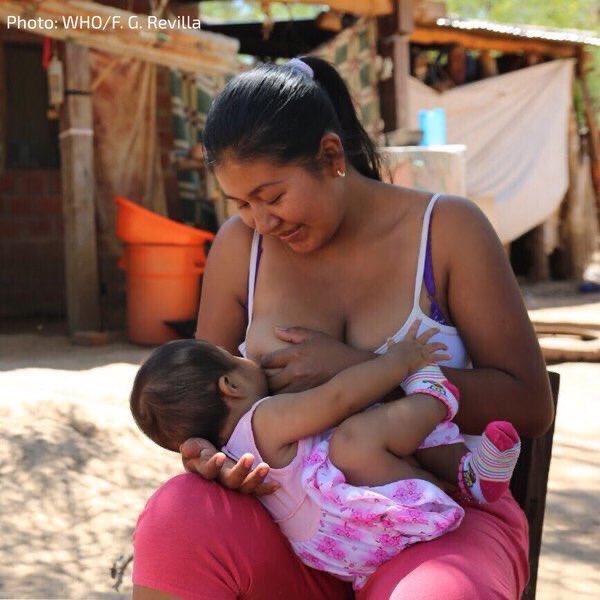 This projectile vomiting can reach several feet away!
This projectile vomiting can reach several feet away!
You’ll see clear fluid or curdled milk. As the channel narrows more and more, projectile vomiting becomes more frequent. Despite the vomiting, your baby still feels hungry and will want to eat again… and again.
If your little one is affected, you’ll start to notice this type of vomiting when your baby is 2 to 3 weeks old, but it can start as late as 6 weeks old. Without nourishment, your baby can become dehydrated, weak, and lose weight.
Although pyloric stenosis is a serious condition, it can be easily righted with surgery. If you suspect this is the issue you should call the doctor right away to discuss your baby’s symptoms.
When they’re spitting up lots of clear liquid you may think that your baby needs water to avoid dehydration. However, you shouldn’t give water to babies under 6 months of age.
Drinking plenty of water every day may be good for you, but it definitely isn’t good for your baby. That’s because babies have tiny tummies (about the size of a walnut in the first week) and their kidneys are still developing.
If you fill your baby’s tummy with water, their hunger mechanism is dulled, and they may not get the nutrients they need. In addition, if your baby’s water intake is too high, there’s a risk of water intoxication.
Sounds far-fetched? Not really when you consider the size of that tiny tummy. Too much water will lower the concentration of electrolytes such as sodium in the blood. So hold the water until your baby is about 6 months old and stick to formula or breast milk.
Your medical team is there to help you with concerns as your child grows. Don’t hesitate to contact them to discuss any issues.
While much of the mess around spit-ups can be easily handled (with a rag and some patience), if you see that your baby has fever, seems listless, is dehydrated, or doesn’t appear to be putting on weight, contact your doctor.
When you’re wiping away another spit-up, you may be tempted to throw in that towel. But hold on… one day soon your baby’s digestive system will be working smoothly and the two of you will be ready to move on to the next stage of child rearing.
Baby Vomiting After Feeding Formula: Causes and Treatment
Your little one is happily gulping their formula while cooing at you. They finish off the bottle in no time flat. But shortly after feeding, it seems to all come out as they vomit.
There are several reasons why your baby might be vomiting after a formula feeding, but it’s important to remember that it can be — and often is — very normal.
It’s common for babies to throw up sometimes after feeding on formula or breast milk. Their shiny new digestive systems are still learning what to do with all the yummy milk coming down into their tummy.
However, if your baby often has a hard time keeping their formula down on a regular and frequent basis, let your pediatrician know.
Having a baby around means getting used to soft mushy stuff coming out fairly often. This includes spit-up and vomit.
Spit-up and vomit might seem pretty much the same — and require similar amounts of cleaning to get them off of your sweater and the sofa — but they’re very different. Spitting up is an easy, gentle dribble of milk. Baby may even smile at you as the curd-like spit-up flows from their mouth.
Spitting up is an easy, gentle dribble of milk. Baby may even smile at you as the curd-like spit-up flows from their mouth.
Spit-up is normal in healthy babies, especially if they’re under the age of 1.
On the other hand, vomit takes more effort, as it comes from deeper in your little one’s stomach. It’s a sign that your baby’s stomach is saying nope, not now, please. You might see your baby strain and recoil just before they projectile vomit. This force happens because vomit is squeezed out by the stomach muscles.
Your baby might also look more uncomfortable during and after vomiting. And vomit looks and smells different. This is because it’s usually formula, breast milk, or food (if your baby is eating solids) mixed with stomach juices.
If you’re not sure whether your baby is vomiting or spitting up, look for other vomiting symptoms, like:
- crying
- gagging
- retching
- turning red
- arching their back
That said, there doesn’t seem to be agreed-upon definitions of these two terms among healthcare providers, caregivers, and others.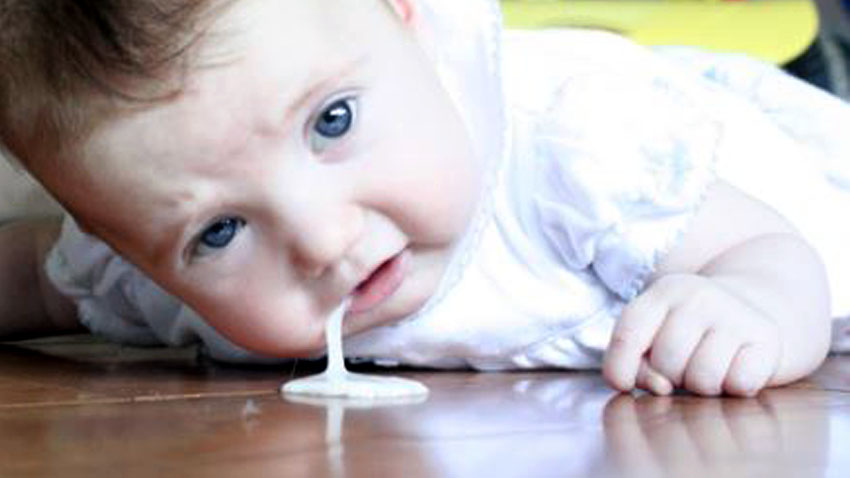 Plus, their symptoms may overlap. For example, spitting up may sometimes be forceful, and vomiting may sometimes seem painless.
Plus, their symptoms may overlap. For example, spitting up may sometimes be forceful, and vomiting may sometimes seem painless.
Overfeeding
It’s easier for your baby to overfeed when they’re drinking from a bottle than when they’re breastfeeding. They can also gulp down milk faster from a bottle and rubber nipple. What’s more, because formula is always available, it’s easier for you to give them more milk than they need by accident.
Babies have tiny stomachs. A 4- to 5-week-old infant can only hold about 3 to 4 ounces in their tummy at a time. This is why they need lots of smaller feedings. Drinking too much formula (or breast milk) in one feeding can overfill your baby’s stomach, and it can only come out one way — vomit.
Not burping properly
Some babies need to be burped after every feeding because they swallow lots of air as they gulp down milk. Bottle feeding your baby breast milk or formula may lead to more air-swallowing, as they can gulp even faster.
Too much air in the stomach can make your baby uncomfortable or bloated and trigger vomiting. Burping your baby right after feeding them formula may help prevent this.
To help prevent your baby from swallowing too much air and vomiting after formula feeding, check your baby’s bottle. Make sure you’re using a smaller bottle that’s just big enough to hold a few ounces of milk. Also, check to make sure the nipple hole is not too big, and don’t let your baby continue gulping when the bottle is empty.
Baby or infant reflux
Baby can have acid reflux, indigestion, or occasionally gastroesophageal reflux disease (GERD just like grown-ups! This happens because their stomach and food tubes are still getting used to holding down milk.
Baby reflux happens when milk travels back up toward your baby’s throat and mouth. This usually just causes some painless spitting up, but it can irritate your baby’s throat and trigger gagging and vomiting.
Sometimes, smaller feedings can help prevent baby reflux. If not, don’t worry! Most little ones outgrow baby reflux by the time they’re 1 year old.
If not, don’t worry! Most little ones outgrow baby reflux by the time they’re 1 year old.
Constipation
While simple constipation would be an uncommon cause of vomiting in an otherwise healthy infant, sometimes baby vomiting happens because of what isn’t happening at the other end.
Most babies who are formula-fed need to poop at least once a day. Anything less than your baby’s typical pattern, though, might indicate they’re constipated.
If your baby is vomiting after a formula feeding, they might be constipated if they have other symptoms, including:
- gassiness
- not pooping for longer than 3–4 days
- a swollen or bloated stomach
- a firm or hard stomach
- crying bouts or irritableness
- straining very hard but not pooping or pooping only a little
- small, hard pellet-like poop
- dry, dark poop
Stomach bug
If your baby doesn’t usually vomit after having formula, they might have a stomach bug. Also known as gastroenteritis or the “stomach flu,” a stomach bug is a very common cause of vomiting in babies. Your little one may vomit several times for up to 24 hours.
Also known as gastroenteritis or the “stomach flu,” a stomach bug is a very common cause of vomiting in babies. Your little one may vomit several times for up to 24 hours.
Other symptoms of a stomach bug include:
- crying
- stomach cramps
- stomach rumbling
- bloating
- diarrhea or watery poop
- mild fever (or none at all in babies)
Allergy
In rare cases, the cause of your baby’s vomiting might be in the formula. Although it’s uncommon for babies to be allergic to cow’s milk, it may happen to up to 7 percent of babies under the age of 1.
Most children outgrow a milk allergy by the time they’re 5 years old, but it can cause vomiting and other symptoms in babies. A cow’s milk allergy might cause vomiting right after your baby eats. It can also cause vomiting and other symptoms hours or rarely days later.
If your baby has an allergy to milk or something else, they might have other symptoms of an allergic reaction, like:
- skin rash (eczema)
- diarrhea
- cough
- hives
- difficulty breathing
- wheezing
Lactose intolerance
An allergy to milk is different than being lactose intolerant.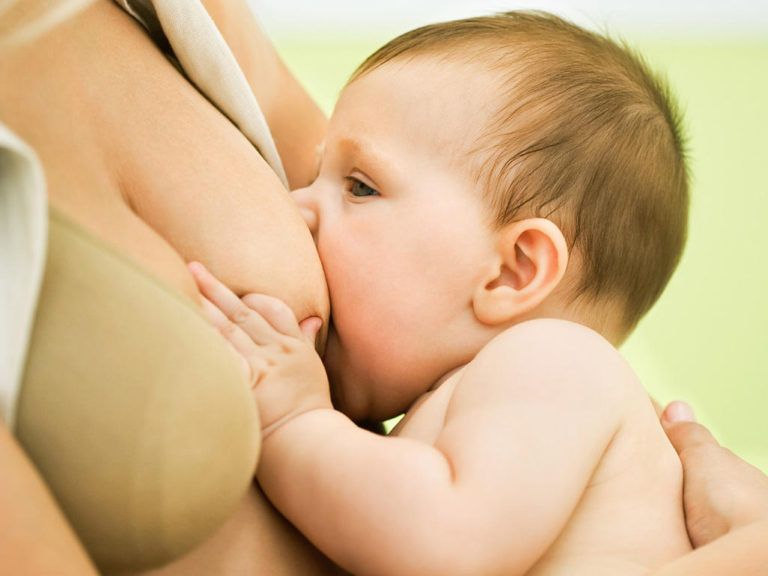 Lactose intolerance usually causes digestive symptoms like diarrhea. It can also make your baby vomit after drinking formula containing cow’s milk.
Lactose intolerance usually causes digestive symptoms like diarrhea. It can also make your baby vomit after drinking formula containing cow’s milk.
Your baby might get temporary lactose intolerance after getting a tummy bug or gastroenteritis, although this is uncommon.
Other symptoms include:
- diarrhea or watery poops
- constipation
- bloating
- gassiness
- stomach pain
- stomach rumbling
Note that lactose intolerance is rare in babies under the age of 1.
Other causes
Some common health conditions can cause vomiting at any time, including after breastfeeding or formula feeding. Some rare genetic conditions can also cause vomiting in babies.
Other causes of vomiting in babies include:
- colds and the flu
- ear infections
- some medications
- overheating
- motion sickness
- galactosemia
- pyloric stenosis
- intussusception
In most cases, minor tweaks can help stop your baby’s vomiting.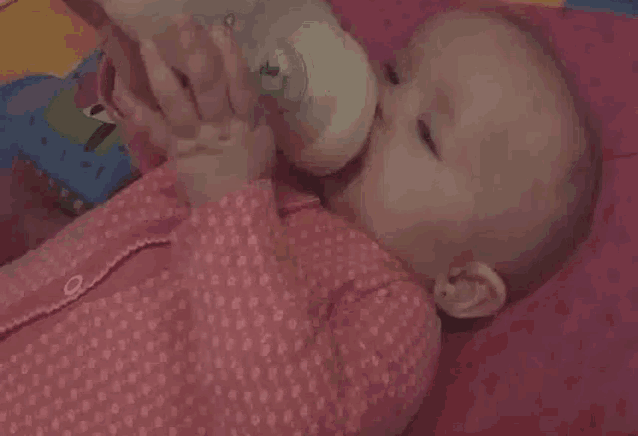 Remedies to stop your baby’s vomiting after formula depend on what’s causing it. Try some of these tried and tested methods to see what helps your baby:
Remedies to stop your baby’s vomiting after formula depend on what’s causing it. Try some of these tried and tested methods to see what helps your baby:
- feed your baby smaller amounts of formula more often
- feed your baby slowly
- burp your baby after the feeding
- hold your baby’s head and chest up while feeding
- hold your baby upright after a feeding
- make sure your baby doesn’t move around or play too much right after a feeding
- try a smaller bottle and smaller-hole nipple to feed
- check the ingredient list on your baby’s formula
- ask your baby’s doctor if you should try a different kind of formula
- talk to your baby’s doctor about a possible allergic reaction
- dress your baby in looser clothing
- make sure their diaper isn’t on too tightly
If your baby has the stomach flu, you’ll both usually just have to ride it out for a day or two. Most babies and children with a stomach bug don’t need treatment.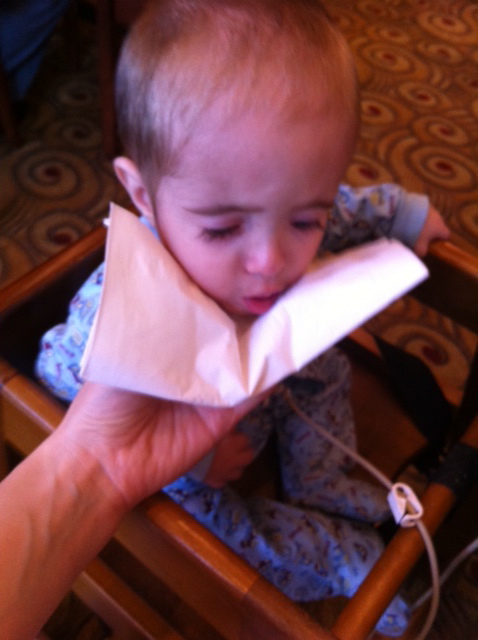
If your baby is vomiting, see your doctor or pediatrician right away if they:
- are vomiting often
- are vomiting forcefully
- aren’t gaining weight
- are losing weight
- have a skin rash
- are unusually sleepy or weak
- have blood in their vomit
- have green bile in their vomit
Also, see your doctor urgently if your baby has any sign of dehydration from all the vomiting:
- dry mouth
- crying without shedding tears
- a weak or quiet cry
- floppiness when picked up
- no wet diapers for 8 to 12 hours
It’s pretty common for babies to vomit, especially after feeding. This happens for many reasons, including that these little people are still just getting used to keeping down their milk.
Check with your doctor about what you can do. See your doctor urgently if your baby vomits often for any reason.
reasons to see a doctor and preventive measures
Digestive problems, symptoms and treatment
Spitting up or regurgitation in a baby is a condition in which there is a passive throwing of gastric contents out and into the oral cavity.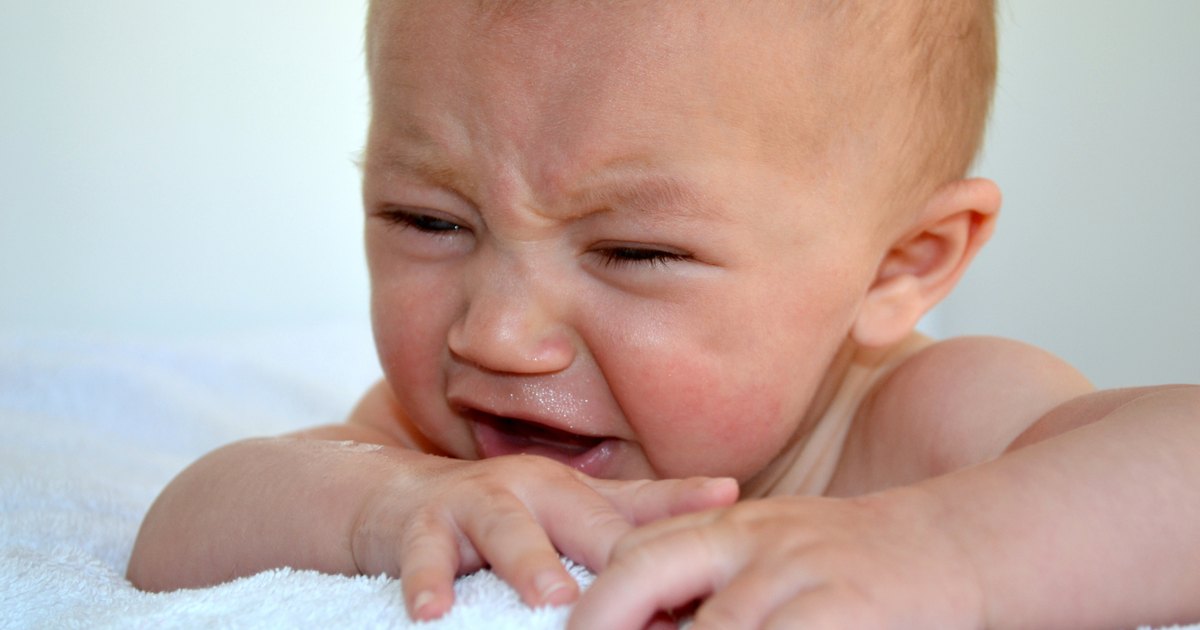 It is a functional digestive disorder. However, with it, even if the child often burps, the functions of any systems and organs are not violated, his state of health does not suffer. More often the baby can spit up towards the end of the first month of life.
It is a functional digestive disorder. However, with it, even if the child often burps, the functions of any systems and organs are not violated, his state of health does not suffer. More often the baby can spit up towards the end of the first month of life.
Authors: Candidate of Medical Sciences, Associate Professor Pakulova-Trotskaya Yu.V. Nyankovskiy S.L.
An infant burps a lot, as this is facilitated by the anatomical and physiological characteristics of the digestive system. This condition occurs in babies who eat greedily, swallowing a lot of air during feeding. The newborn also burps in cases where the composition and volume of food do not correspond to the functionality of the crumbs, in case of violation of the diet and improper technique of attachment to the breast.
Causes of regurgitation in a child
In newborns, regurgitation is promoted by the peculiarities of the gastrointestinal tract and its general immaturity.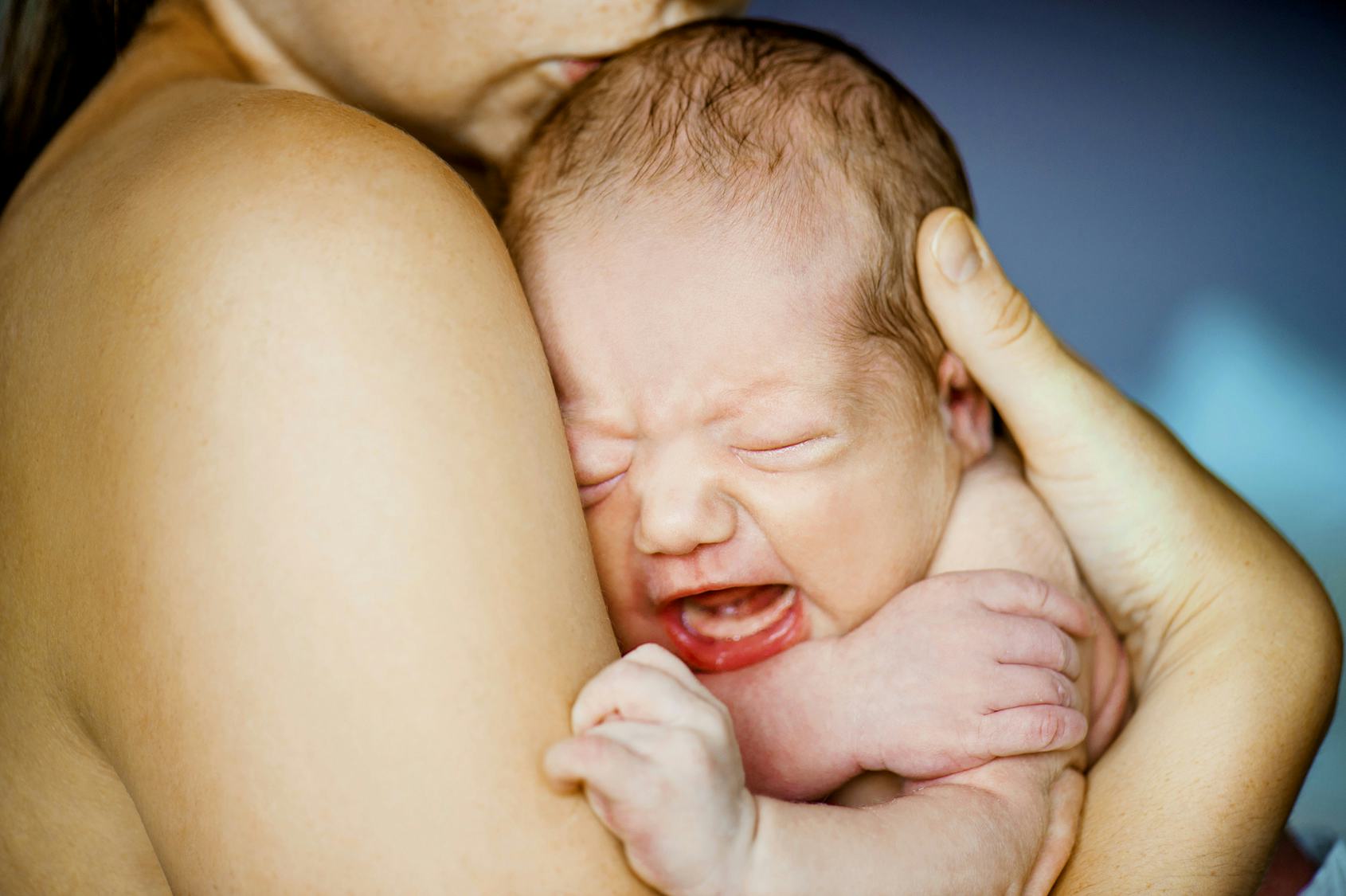 But sometimes infantile regurgitation can be a symptom of a serious illness. Therefore, you need to see a doctor to determine the reason why the newborn is spitting up. It is important not to forget that in rare cases, regurgitation can provoke dangerous complications: esophagitis (inflammation of the esophageal mucosa), aspiration pneumonia (pneumonia), anemia (lack of hemoglobin), and sometimes sudden infant death syndrome.
But sometimes infantile regurgitation can be a symptom of a serious illness. Therefore, you need to see a doctor to determine the reason why the newborn is spitting up. It is important not to forget that in rare cases, regurgitation can provoke dangerous complications: esophagitis (inflammation of the esophageal mucosa), aspiration pneumonia (pneumonia), anemia (lack of hemoglobin), and sometimes sudden infant death syndrome.
Once the cause of the child's spitting up has been determined and serious illness has been ruled out, the diagnosis of infantile regurgitation can be made. The following criteria are taken into account:
- Spitting up two or more times a day for more than three weeks, while milk or formula can flow either through the mouth or through the nose.
- The baby's general condition is not disturbed, he swallows normally, there are no apnea attacks (stops in breathing), there is no vomiting and aspiration, there are no blood impurities in the contents.

There are such reasons why a baby spit up formula or breast milk:
- There is more food than the baby's stomach can "hold" and digest. It is believed that the main reason why a child spits up a fountain is feeding "on demand". The first 6 months of life, the cardial part of the stomach is not perfect, the cardiac sphincter is poorly developed, which prevents food from being thrown into the esophagus. Liquid food quickly enters the intestines, peristalsis occurs, which contributes to an increase in pressure in the fundus of the stomach. This provokes the ejection of food.
- Flatulence - air bubbles put pressure on the walls of the stomach, causing regurgitation.
- Excessive activity of the nervous system of newborns.
- Constipation.
When spitting up, it is important to watch how the baby gains weight. If he is normal, the baby sleeps well, smiling, then regurgitation is not a health problem. But do not forget that the reasons why the child often burps may be congenital malformations of the esophagus, a foreign body in it, diaphragmatic hernia, pathologies of the nervous system, lactase deficiency, infectious diseases.
How often the child spit up
Anatomical and physiological features contribute to the fact that the child spit up a lot at an early age. The tone of the lower esophageal sphincter is reduced, therefore, as soon as intragastric pressure rises for one reason or another, food is thrown out.
Often regurgitation occurs at 2 weeks of age. The frequency and intensity of infantile regurgitation increases in the second month and lasts up to about six months. After 6 months, the baby spits up less. In some children (about 10% of cases), this condition can persist for up to 1 year. The child often spits up the first 3 months of life - this happens in almost 100% of children. At 4-6 months, regurgitation can persist in about 60% of cases, from 6 to 12 months - 20%, very rarely - after 1 year (about 2% of cases). Every baby burps after a feed at a different rate. Sometimes even completely healthy babies can spit up 20-30 times a day.
If a newborn spit up a lot, this is a normal reaction of his body.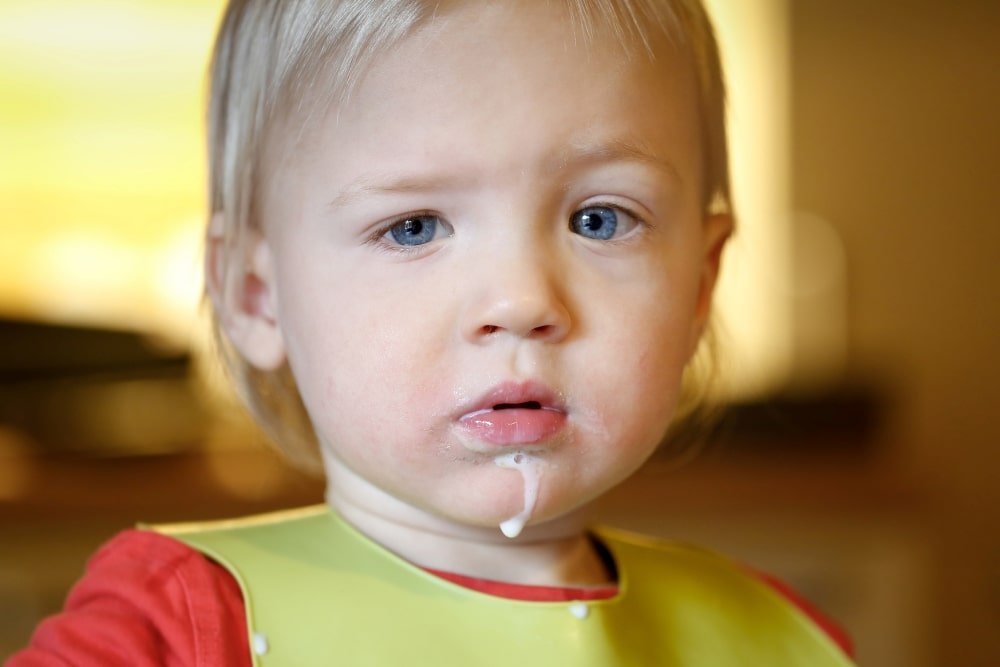 Regurgitation can occur in completely healthy children, but in a small amount (up to 3 ml) and not too often. Often such a condition resolves on its own before the end of the first year of life, but sometimes, if the child spit up heavily, an examination may be necessary.
Regurgitation can occur in completely healthy children, but in a small amount (up to 3 ml) and not too often. Often such a condition resolves on its own before the end of the first year of life, but sometimes, if the child spit up heavily, an examination may be necessary.
The following points should alert:
- the presence of bile, blood in the masses;
- baby loses weight;
- progression of regurgitation;
- crown ripple;
- child spits up like a fountain, the situation repeats many times;
- deterioration in general condition;
- developmental delay;
- hepatosplenomegaly.
Content of regurgitation
The main indicator of a child's health in the first months of life is his physical development. What to do if the baby spits up breast milk while breastfeeding? If he systematically gains weight, height, behaves normally, do not worry. When the baby grows up a little and switches to a more solid diet, regurgitation will disappear over time.
Sometimes a newborn spit up curd. Such content does not indicate disease or malformation. Most often, this situation occurs if during feeding the baby swallows a lot of air, he has bloating or normal overfeeding. If a child is spitting up cottage cheese, the following actions will help eliminate this:
- Feed the baby often, but in small portions;
- hold it at a 45-degree angle for a while after feeding to encourage the baby to burp;
- apply correctly up to the chest;
- give a remedy for excessive gas formation.
Sometimes a baby will spit up formula while formula-fed because it may not be the right formula for him. In this case, choosing a different diet, you can get rid of regurgitation. Or simply making a smaller hole in the nipple is enough to prevent a lot of air from getting in.
Regurgitation is considered to be physiological, if their volume is not more than 2 tablespoons, they occur an hour after feeding and disappear at about 9months.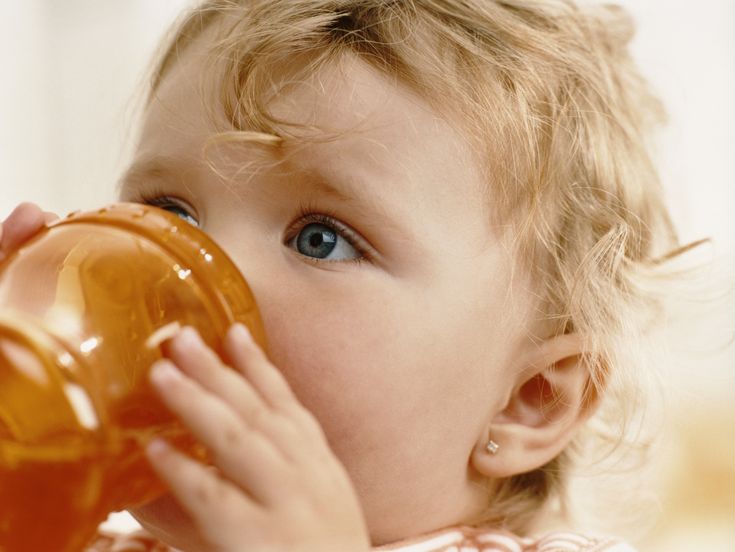 At the same time, the child spits up milk, slightly curdled or unchanged, recovers normally and grows.
At the same time, the child spits up milk, slightly curdled or unchanged, recovers normally and grows.
One can speak of a pathological character in cases where:
- regurgitation occurs later than an hour after eating;
- more frequent at night;
- frequency of regurgitation - more than 7 times a day;
- rejected food in the amount of 3-5 ml and more;
- turns into vomiting that does not stop;
- poor weight gain;
- regurgitation with blood, bile;
- the process does not go away by the age of one.
All this may indicate the possible presence of some disease. If you notice at least one of the listed signs or a combination of them, you should immediately contact a gastroenterologist or pediatrician.
What is the difference between regurgitation and vomiting?
The main difference between regurgitation and vomiting is that in the first case it is more often a physiological act, and in the second it is the result of a particular pathology.
- Vomiting is a reflex of the nervous system, which involves the skeletal and smooth muscles of the digestive system (only smooth muscles during regurgitation). In this case, the contents of the stomach are emptied through the mouth due to the coordinated work of such organs as the esophagus, stomach, intestines and diaphragm. During vomiting, much more fluid is lost compared to spitting up, as a result of which dehydration can occur and the baby's condition is disturbed. Vomiting can occur at any time, regardless of whether the child has just taken food. Often occurs in copious amounts, can be repeated several times in a row. Older children may complain of nausea and abdominal pain before vomiting.
- There is no discomfort during regurgitation, the baby is calm. There is no need to worry if the child spits up water. During feeding, the milk that enters the stomach coagulates. Thus, it is divided into curd and whey, which looks like water. It is she who comes out when she burps.
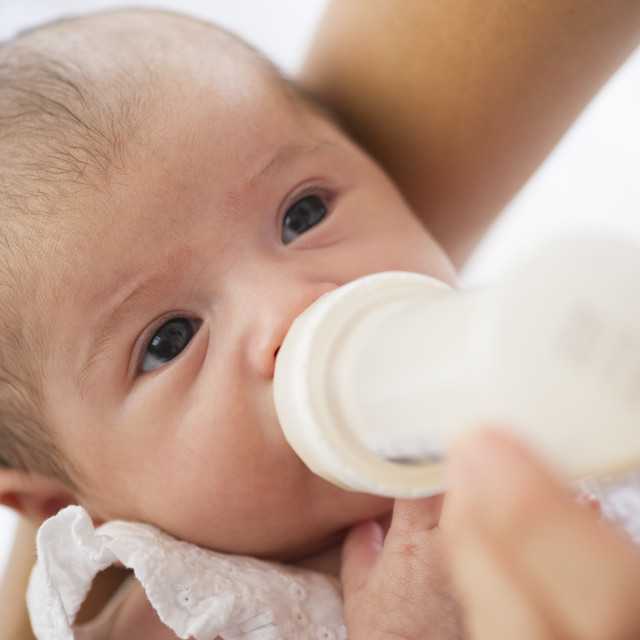 This is normal. Another reason is excessive salivation, then the water spit up is saliva that the baby has recently swallowed.
This is normal. Another reason is excessive salivation, then the water spit up is saliva that the baby has recently swallowed.
It also happens that the child burps through the nose. This happens when the baby is not fed properly. If regurgitation through the nose is repeated often, you should consult a doctor, as this violates the integrity of the nasal mucosa, polyps may occur over time.
If a newborn spit up yellow, this is definitely not normal. This is possible with various infectious diseases, intestinal obstruction, lactose intolerance, food allergy to the mixture, adverse effects on the intestines of antibiotics.
In some illnesses, the newborn vomits like a fountain. These are pylorospasm and pyloric stenosis. In the first case, medical treatment is sufficient, and in the second, the baby needs an emergency operation. It is especially important to act quickly if the child does not gain weight, his general condition is disturbed.
When should I consult a doctor?
If a newborn spit up in small amounts, this is a common functional disorder that often occurs in young children. But sometimes it happens that such a condition may indicate certain diseases and developmental anomalies.
But sometimes it happens that such a condition may indicate certain diseases and developmental anomalies.
Cases in which you need to see a doctor:
- spitting up more profusely than before;
- the general condition of the child is disturbed;
- if the child spit up frequently compared to before;
- there is severe weight loss;
- body temperature rises;
- regurgitation suddenly started in the second half of the year;
- profuse regurgitation "fountain";
- signs of dehydration;
- regurgitation yellow, with blood;
- protrusion of crown;
- feeling of hunger after regurgitation in large quantities;
- regurgitation continues after 1 year of age.
How can I help my baby spit up?
Many parents wonder what to do if their baby is spitting up more often than before. Treatment in this case must necessarily be complex, taking place in several stages:
- It is important to pay attention to feeding the baby - to follow the rules of eating and cooking.
 Remember that if regurgitation is a physiological condition, then it will pass with time.
Remember that if regurgitation is a physiological condition, then it will pass with time. - During feeding, the newborn should be in a semi-vertical position (45-60 degree angle). After eating, it must be kept in the same position for another 20 minutes. The child often spits up due to swallowing air. It will also help to avoid raising the head end of the bed by 30 degrees.
- Diet and normalization of the diet. If the baby is spitting up, it is recommended to feed him often, in small portions. The pediatrician may prescribe a special anti-reflux mixture as an additional food for breastfeeding and the main one for artificial feeding. Such mixtures are more viscous, as they contain special thickeners. When a newborn spit up, the amount of anti-reflux mixture and the duration of its intake are selected individually. Sometimes 20-40 ml before feeding may be enough. If the effect is achieved, the child can be transferred to feeding with a regular mixture or breast. If the need arises, the baby can eat an anti-reflux mixture for a long time as the main food.
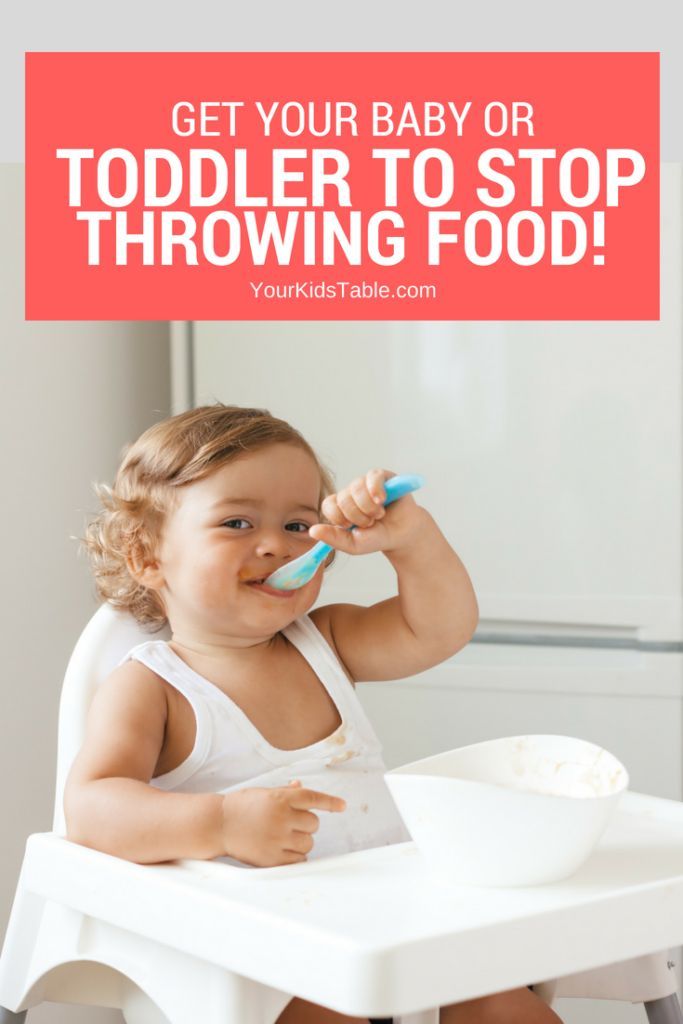
The reason why the baby spit up a lot is also an allergy to cow's milk protein. In this case, it is important to change the diet of a nursing mother - to exclude foods that contribute to excessive gas formation (dairy products, legumes, cabbage, spices, eggs). Artificialists should avoid mixtures that contain any amount of undigested protein, even a small amount. You need to choose mixtures with complete hydrolysis of the protein.
To normalize the motility of the digestive organs, if necessary, the doctor prescribes special means according to an individual scheme.
Often, due to the anatomical and physiological features of development in children of the first months of life, regurgitation can be observed. These disorders can be effectively dealt with through diet therapy.
Nutrilon Anti-Reflux helps reduce the frequency and severity of regurgitation in children thanks to its natural gum content.
With a 40:60 ratio of whey proteins and casein, this blend helps to improve digestive health.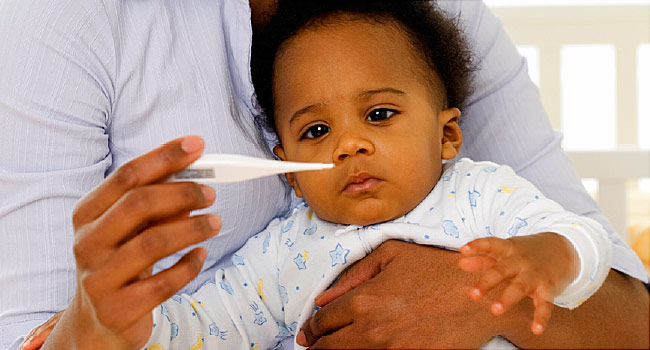
In addition, Nutrilon Antireflux Blend contains:
- Long-chain polyunsaturated fatty acids Omega-3/Omega-6 - necessary for the normal development of the nervous system and brain, which is closely related to the level of intelligence of the child. The mentioned acids are also involved in the development of the retina and have a general positive effect on the emotional state of the child 1-2 . More
- Nyankovskiy S. L. Immunomodulating and zahisnyy injection of the prebiotic complex of oligosaccharides in Immunofortis in children of early age, who are on the box plant / S. L. Nyankovskiy, O. S. Ovryanenko // pediatrics. - 2010. - No. 5 (33). - S. 147-150.
- Willatts P, Forsyth JS, DiModugno MK, Varma S, Colvin M. Effect of long-chain polyunsaturated fatty acids in infant formula on problem solving at 10 months of age. Lancet. 1998;352(9129):688-691.
- Koletzko, Berthold & Lien, Eric & Agostoni, Carlo & Böhles, Hansjosef & Campoy, Cristina & Cetin, Irene & Decsi, Tamás & Dudenhausen, Joachim & Dupont, Cristophe & Forsyth, Stewart & Hoesli, Irene & Holzgreve, Wolfgang & Lapillonne, Alexandre & Putet, Guy & Secher, Niels & Symonds, Mike & Szajewska, Hania & Willatts, Peter & Uauy, Ricardo.
 (2008). The roles of long-chain polyunsaturated fatty acids in pregnancy, lactation and infancy: review of current knowledge and consensus recommendations. Journal of perinatal medicine. 36.5-14. 10.1515/JPM.2008.001.
(2008). The roles of long-chain polyunsaturated fatty acids in pregnancy, lactation and infancy: review of current knowledge and consensus recommendations. Journal of perinatal medicine. 36.5-14. 10.1515/JPM.2008.001. - Digestive problems, Symptoms and treatment Worms in children: signs, symptoms, treatment abdomen in a child
- Digestive problems, Symptoms and treatment Colic in a newborn
- Digestive problems, Symptoms and treatment Irritable bowel syndrome in children
- When to see a doctor?, Digestive problems, Symptoms and treatment Intestinal infection in children: symptoms, treatment, menu and diet
- Diarrhea in a child: causes, symptoms and treatment
- Digestive problems, Symptoms and treatment Why does a child spit up: causes
- Digestive problems, Symptoms and treatment Heartburn in a child: what is it and what to do about it?
- All digestive problems
- Structural features of the upper digestive tract in babies
- In newborns and infants up to a year of age, the stomach has a spherical shape.
 It holds a small amount of food, besides, the release from it into the duodenum is slower in comparison with children after the year 2 .
It holds a small amount of food, besides, the release from it into the duodenum is slower in comparison with children after the year 2 . - Weakness of the lower esophageal sphincter that separates the esophagus from the stomach
- Normally, the lower esophageal sphincter should tightly “close” the esophagus, allowing food to pass into the stomach and not allowing it to enter back into the upper digestive tract. However, in young children (up to a year), the muscles of the esophageal sphincter are poorly developed, and it does not do its job very well 2 .
- Slow movement of food through the gastrointestinal tract
- The neuromuscular apparatus of newborns is immature. It does not ensure the proper movement of food through the esophagus, causing regurgitation.
- tight swaddling;
- stool disorder, in particular constipation;
- long, forced cry and some others.
- usually continues for a certain period of time;
- is characterized by slow, "passive" outflow; if the baby spits up a fountain, it is better to consult a doctor;
- has a sour smell of curdled milk;
- occurs without the participation of muscles - the baby does not strain during regurgitation;
- does not affect the general well-being of the baby.

- Frequent feeding of the baby
It is known that babies are more prone to spit up if their stomach is full. To improve the situation, it is recommended to feed the baby more often, avoiding oversaturation, best of all - on demand 5 . - Correct feeding technique
Every feeding, the mother must ensure that the baby does not swallow too much air during suckling. When sucking, there should be no loud, smacking, clicking sounds. You also need to control that the baby captures the nipple along with the areola. - Choosing the right bottle and nipple
If the newborn is bottle-fed and receiving formula, it is important to choose the right bottle and nipple.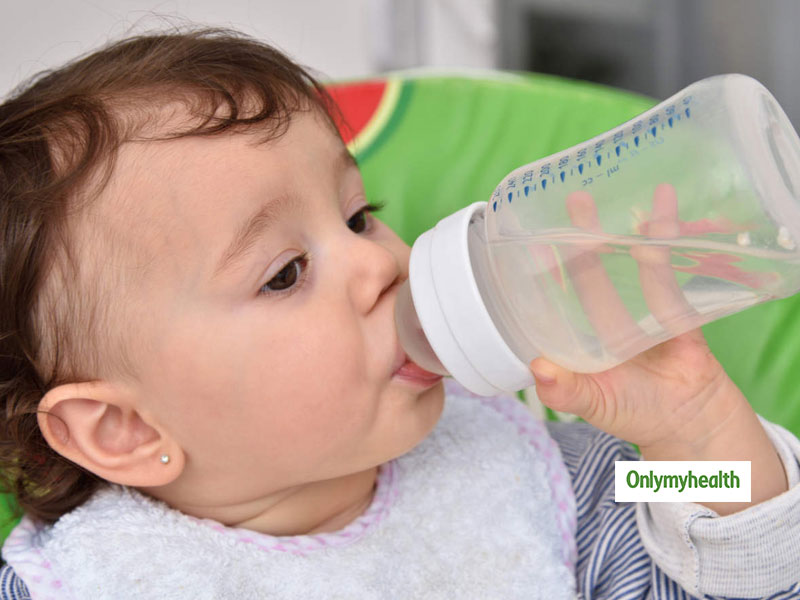 The hole in it should be such that the milk flows out in drops, and not in a stream. The nipple must not be filled with air
The hole in it should be such that the milk flows out in drops, and not in a stream. The nipple must not be filled with air New Anti-colic bottle with AirFree valve
The AirFree valve prevents air from entering the baby's stomach.
- Baby standing upright after eating
To allow air that has entered the digestive tract during meals to escape, it is important to hold the newborn upright for 10-20 minutes after feeding 4 .
- Ensure the correct position of the baby during sleep
To reduce the negative impact of the acidic contents of the stomach on the esophagus, it is necessary to put the baby to sleep in a supine position. The side or prone position, which many pediatricians used to recommend, is no longer recommended. It was found to be associated with an increased risk of sudden infant death syndrome 5 .
If parents notice alarming symptoms, such as regurgitation that occurs too often or is large in volume, etc.
 , it is important to consult a pediatrician without delay. This will allow you to identify the real problem in time and help the baby grow up healthy and happy.
, it is important to consult a pediatrician without delay. This will allow you to identify the real problem in time and help the baby grow up healthy and happy.
References1 Zakharova I. N., Andryukhina E. N. Regurgitation and vomiting syndrome in young children // Pediatric pharmacology, 2010. V. 7. No. 4.
29019 V., Limarenko M. P., Logvinenko N. G. Experience with the use of domperidone in suspension in young children with regurgitation syndrome // Child Health, 2013. No. 5 (48).
3 Zakharova IN Regurgitation and vomiting in children: what to do? //Pediatrics. Supplement to Consilium Medicum, 2009. No. 3. S. 58-67.
4 Zakharova I. N., Sugyan N. G., Pykov M. I. Regurgitation syndrome in young children: diagnosis and correction // Effective pharmacotherapy, 2014. No. 3. P. 18-28.
5 Vandenplas Y. et al. Pediatric gastroesophageal reflux clinical practice guidelines: joint recommendations of the North American Society for Pediatric Gastroenterology, Hepatology, and Nutrition (NASPGHAN) and the European Society for Pediatric Gastroenterology, Hepatology, and Nutrition (ESPGHAN) //Journal of pediatric gastroenterology and nutrition.

Why does the baby spit up after feeding?
Search Support IconSearch Keywords
Regurgitation is a common condition in newborns and infants and is most often a normal variant.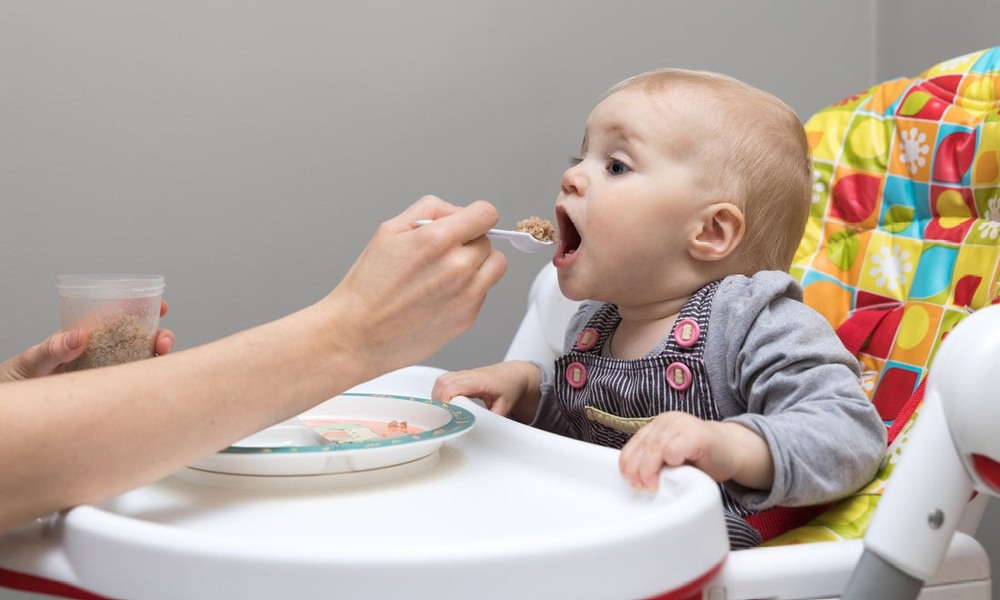 However, it is not uncommon for parents to worry if their baby is spitting up frequently, believing that it is due to nutritional or health problems in general. Sometimes these fears are not unfounded, and regurgitation really has a pathological origin. What is its cause and when should you really consult a doctor about this?
However, it is not uncommon for parents to worry if their baby is spitting up frequently, believing that it is due to nutritional or health problems in general. Sometimes these fears are not unfounded, and regurgitation really has a pathological origin. What is its cause and when should you really consult a doctor about this?
Regurgitation - Return of a small amount of food (uncurdled or partially curdled milk) from the stomach up the digestive tract: into the esophagus and further into the oral cavity. According to statistics, at least 1 time during the day, at least 50% of babies from 0 to 3 months old can spit up, more than 60% of children 3-4 months old, and in 5% of children spit up continues up to the year 1 .
Regurgitation in newborns is considered a physiological process. It is caused by a number of factors, including:
Aerophagia is considered to be one of the important risk factors that contribute to regurgitation in newborns. This is the swallowing of large amounts of air during feedings. This happens when the baby is not properly attached to the breast, the mother has a lack of breast milk, or the bottle is in the wrong position in the child who receives the mixture. The size of the opening in the nipple also matters - if it is too large, the newborn swallows a lot of air 3 .
This happens when the baby is not properly attached to the breast, the mother has a lack of breast milk, or the bottle is in the wrong position in the child who receives the mixture. The size of the opening in the nipple also matters - if it is too large, the newborn swallows a lot of air 3 .
With aerophagia, the baby becomes capricious, restless immediately after feeding. Noticeable bloating. If the baby spits up immediately after a feed, the milk (or formula) remains practically fresh, uncurdled 3 .
Promotes post-feeding regurgitation and baby's predominantly horizontal position during the day, combined with relatively high intra-abdominal pressure 4 . Therefore, the correct position of the baby after feeding is so important. To avoid regurgitation of an excessive amount of stomach contents, after feeding, it is necessary to hold the baby in an upright “column” position for some time (10-20 minutes), lightly patting on the back and allowing excess air to “exit”.
Regurgitation in many newborns can be triggered by other situations in which abdominal pressure increases and stomach contents are thrown into the esophagus, in particular 3 :
Want to avoid common feeding problems?
Start with a baby bottle with an anti-colic system that helps avoid common feeding problems such as colic, gas and spitting up*
How can you tell the difference between normal spitting up and vomiting?
Sometimes regurgitation is considered a manifestation of disorders in the digestive tract of children. Due to the constant reflux of acidic stomach contents into the upper sections, inflammation and other complications may develop, including growth retardation, a decrease in hemoglobin levels, and others.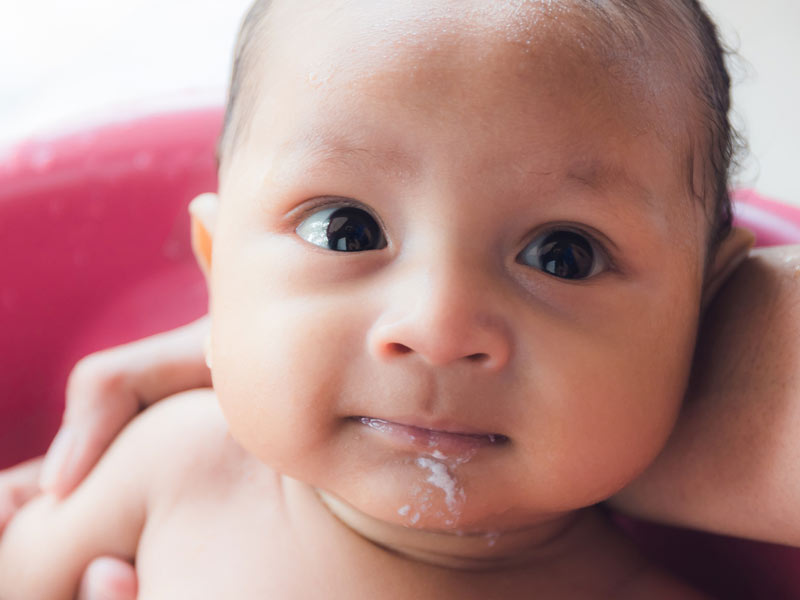 Therefore, it is important for parents to understand where the line is between physiological and pathological regurgitation 1 .
Therefore, it is important for parents to understand where the line is between physiological and pathological regurgitation 1 .
If the mother is worried that her baby is spitting up, keep track of when this happens and count the total number of spit ups per day. Normally, regurgitation usually occurs after eating (the child burps after each feeding), lasts no more than 20 seconds and repeats no more than 20-30 times a day. With pathology, the problem manifests itself at any time of the day, regardless of when the baby was fed. Their number can reach 50 per day, and sometimes more 1 .
The amount of discharge during regurgitation also matters. With normal, physiological regurgitation, it is approximately 5 - 30 ml. If this volume fluctuates between 50 and 100 ml, it is already defined as profuse vomiting. When the range of the jet of vomit is up to 50 cm, doctors talk about "vomiting a fountain." A variant of atonic vomiting is possible, when the contents of the stomach flow "sluggishly". It occurs with atony of the stomach (decrease in muscle tone of the stomach wall) and disruption of the esophagus 1 .
It occurs with atony of the stomach (decrease in muscle tone of the stomach wall) and disruption of the esophagus 1 .
Vomiting in babies is a warning sign. Doctors are especially alarmed by repeated vomiting, a fountain, with an admixture of bile, in combination with constipation. Vomiting can lead to the development of dehydration, acid-base imbalance and other consequences, therefore, if it occurs, you should urgently contact a pediatrician to find out the cause and begin treatment. A doctor's consultation is necessary if the child is spitting up a lot (more than 15-30 ml at a time), with a frequency of more than 50 episodes per day 1.3 .
Physiological regurgitation: symptoms
Regurgitation in newborns, which is considered a normal variant and is not of concern to pediatricians 3 :
How can I help a newborn who vomits frequently?
If the baby is healthy, no medication is prescribed for spitting up. To help the child allow simple measures based on lifestyle changes and feeding.

